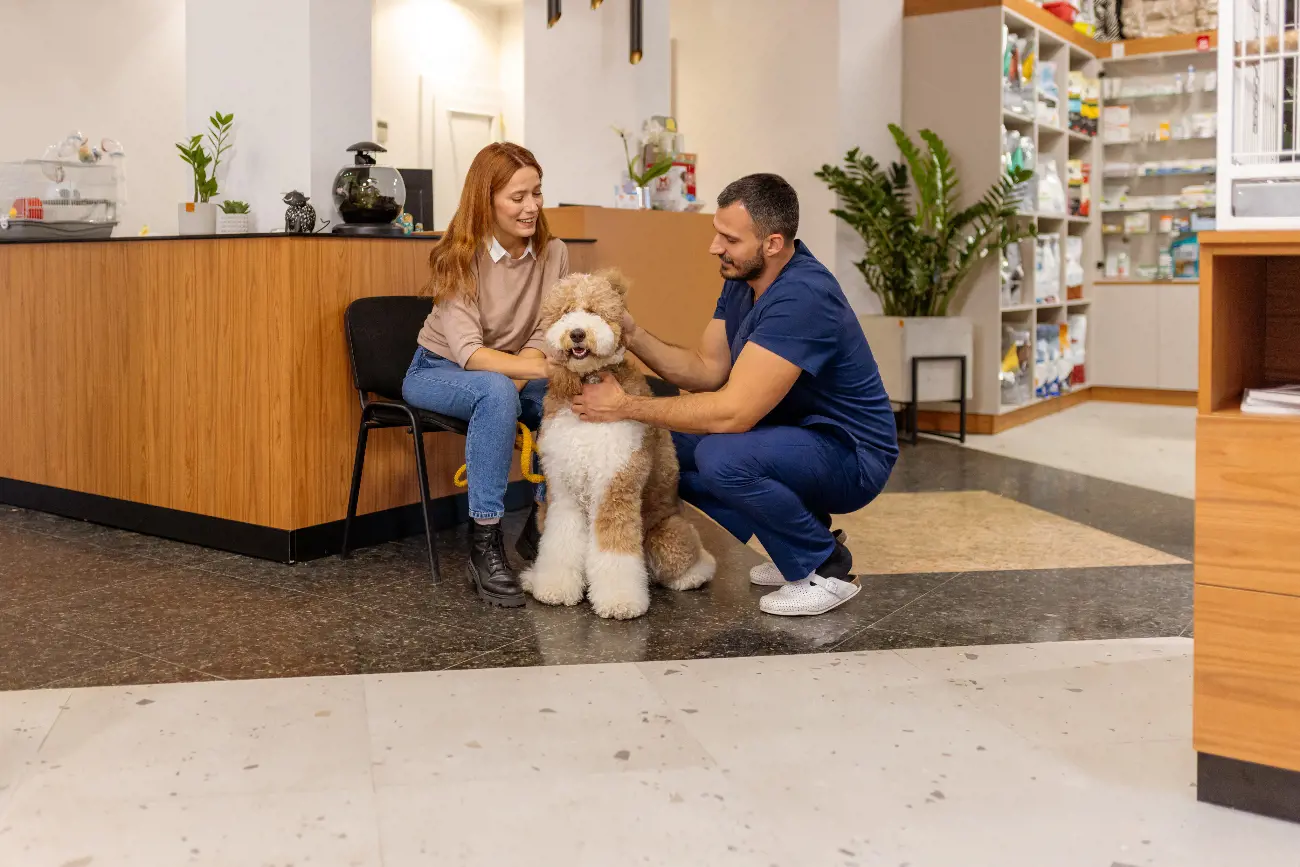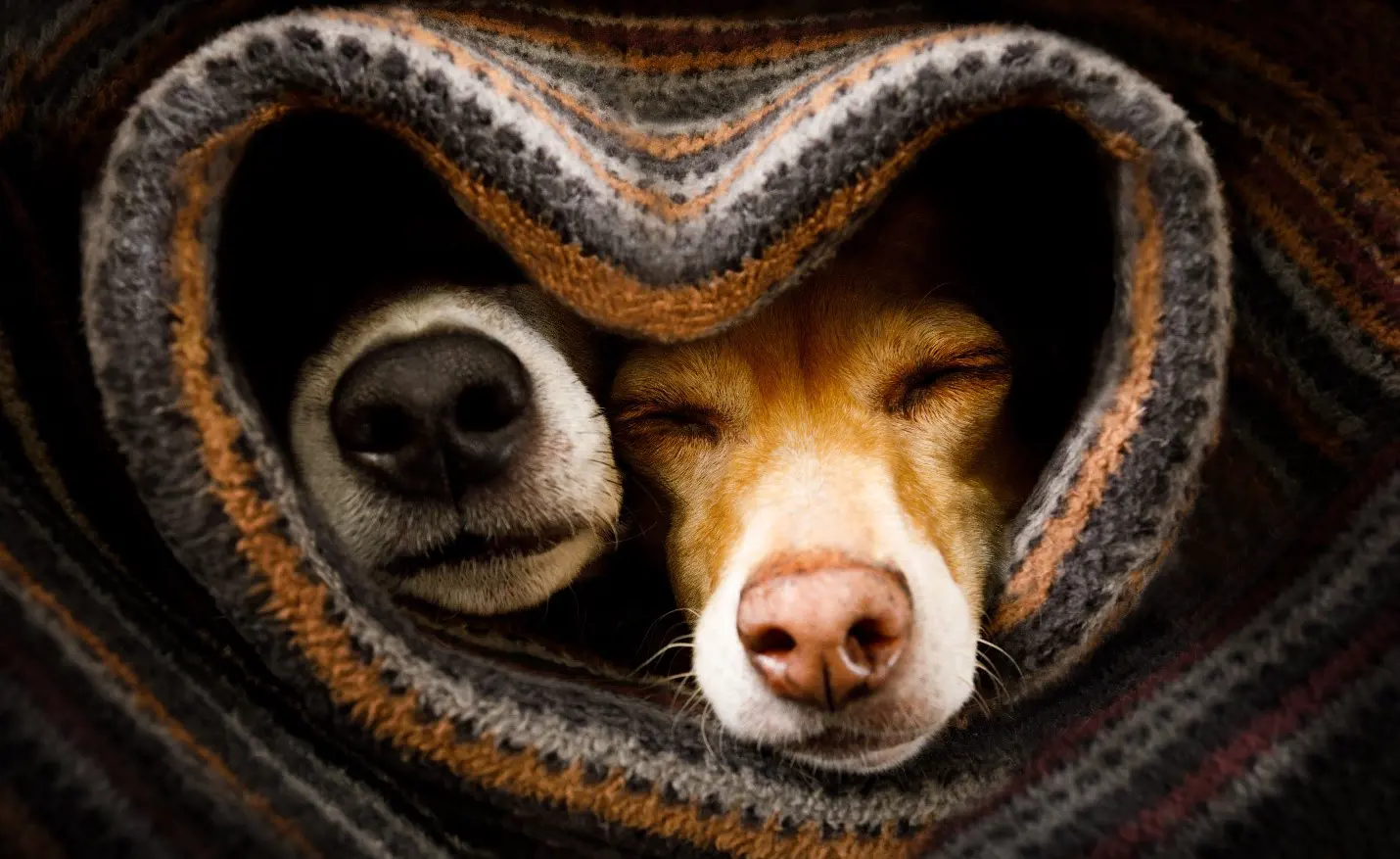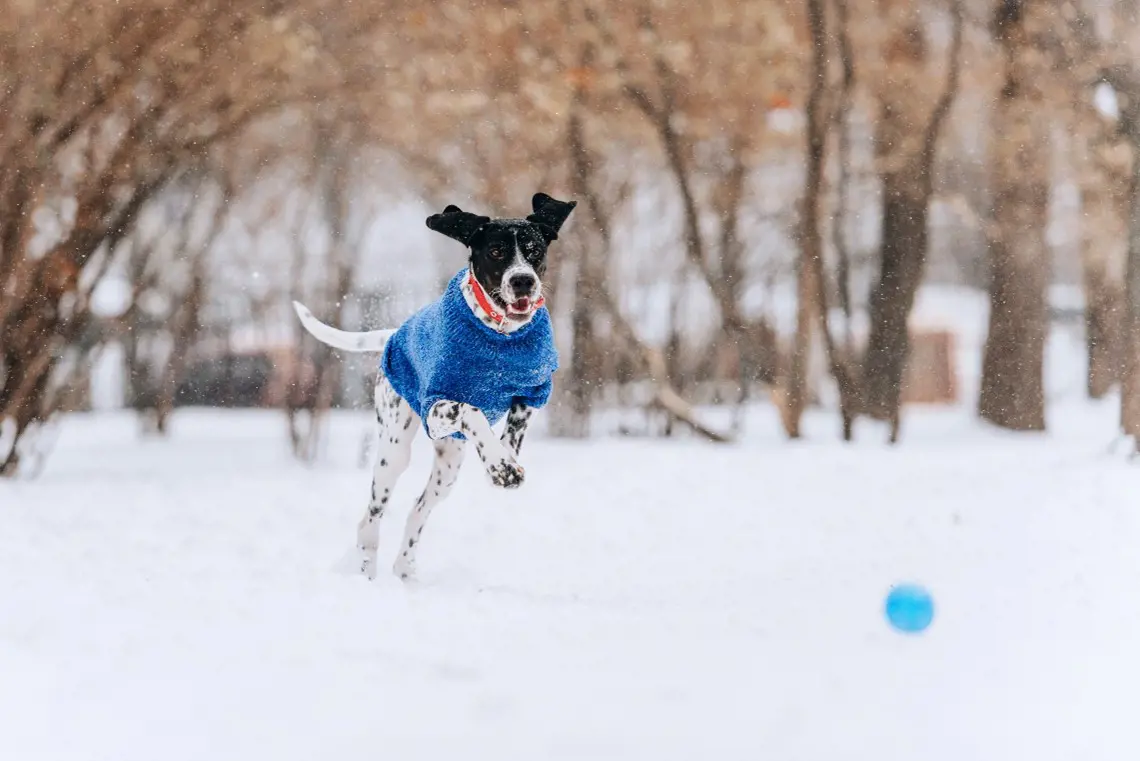How to care for your pet in winter
26th November, 2025
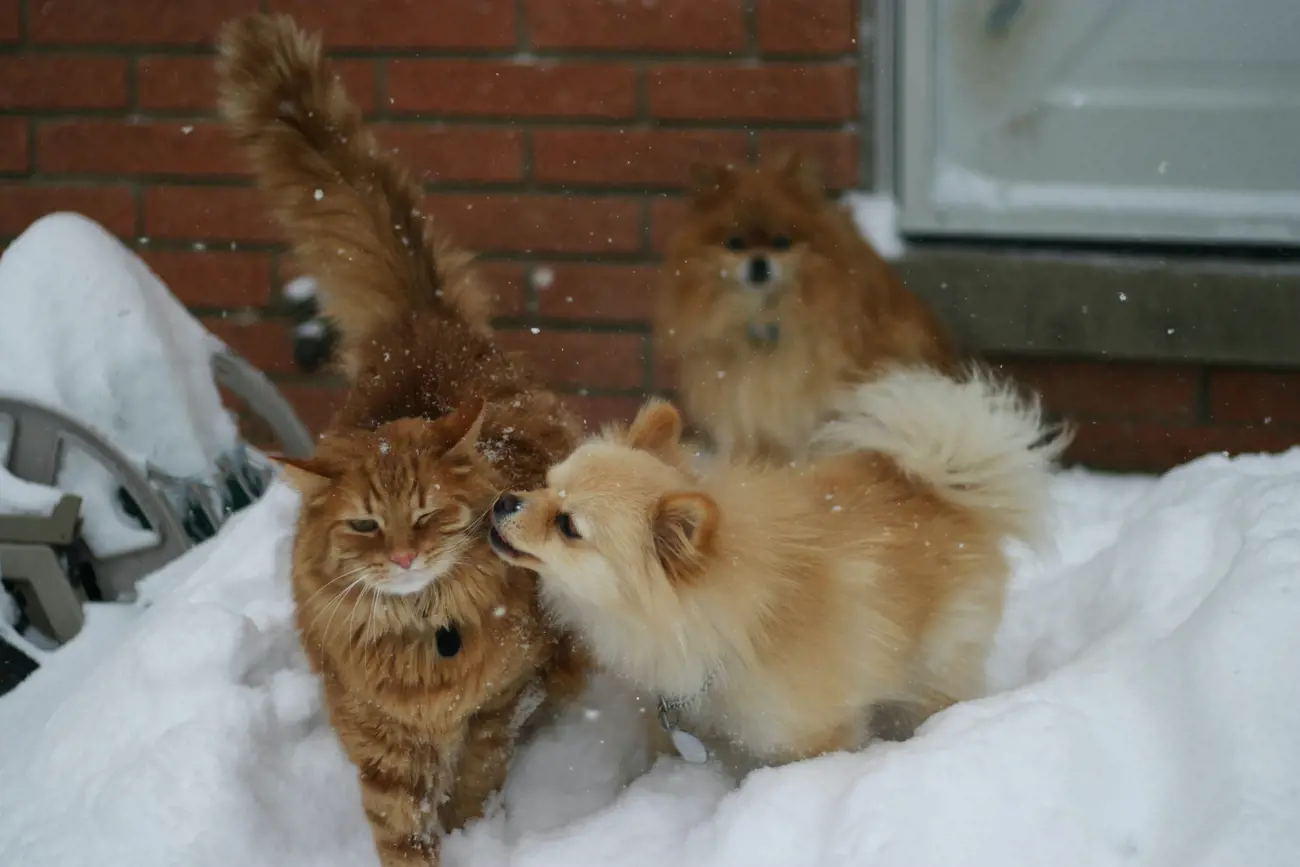
Does your pet love it when the weather turns chilly or would they rather snuggle up with you on the sofa? Whatever their preference they’ll need to be well protected when they do venture outside. This handy guide will give you some top tips on caring for your cat or dog this winter and keep them safe and warm, whatever the weather.
One of the best things you can do to keep your pet protected all year round is to invest in insurance for your pet. Insurance plans from Purely Pets are packed with benefits. Give us a call today to find out more.
10 ways to protect your dog this winter
Keep them well wrapped up
Keeping your dog well exercised is just as necessary in the winter months as it is in summer. But if it looks cold enough for you to wear a coat then it might be worth getting them one, too.
While some dogs already have deep, thick fur to protect them, fine-coated dogs like Greyhounds and Dobermanns don’t. A suitable coat should keep them warm on cold winter walks.
Check their paws regularly
A winter walk can play havoc with your pooch’s paws so you need to regularly check and dry them after they've been outside.
If you have a long-haired dog with particularly furry feet then trim the fur to prevent balls of ice from building up between their toes – after all, icey paws can soon get very painful. Also, when it gets icy, look out for salt and grit from roads and pavements.
This can easily get lodged between their toes and cause discomfort, too. Indeed, some salt can even burn your dog’s pads and could potentially be toxic if licked off during grooming.
So try to give their feet a quick wash when you get home. Perhaps also consider getting a set of dog booties for when the cold really sets in.
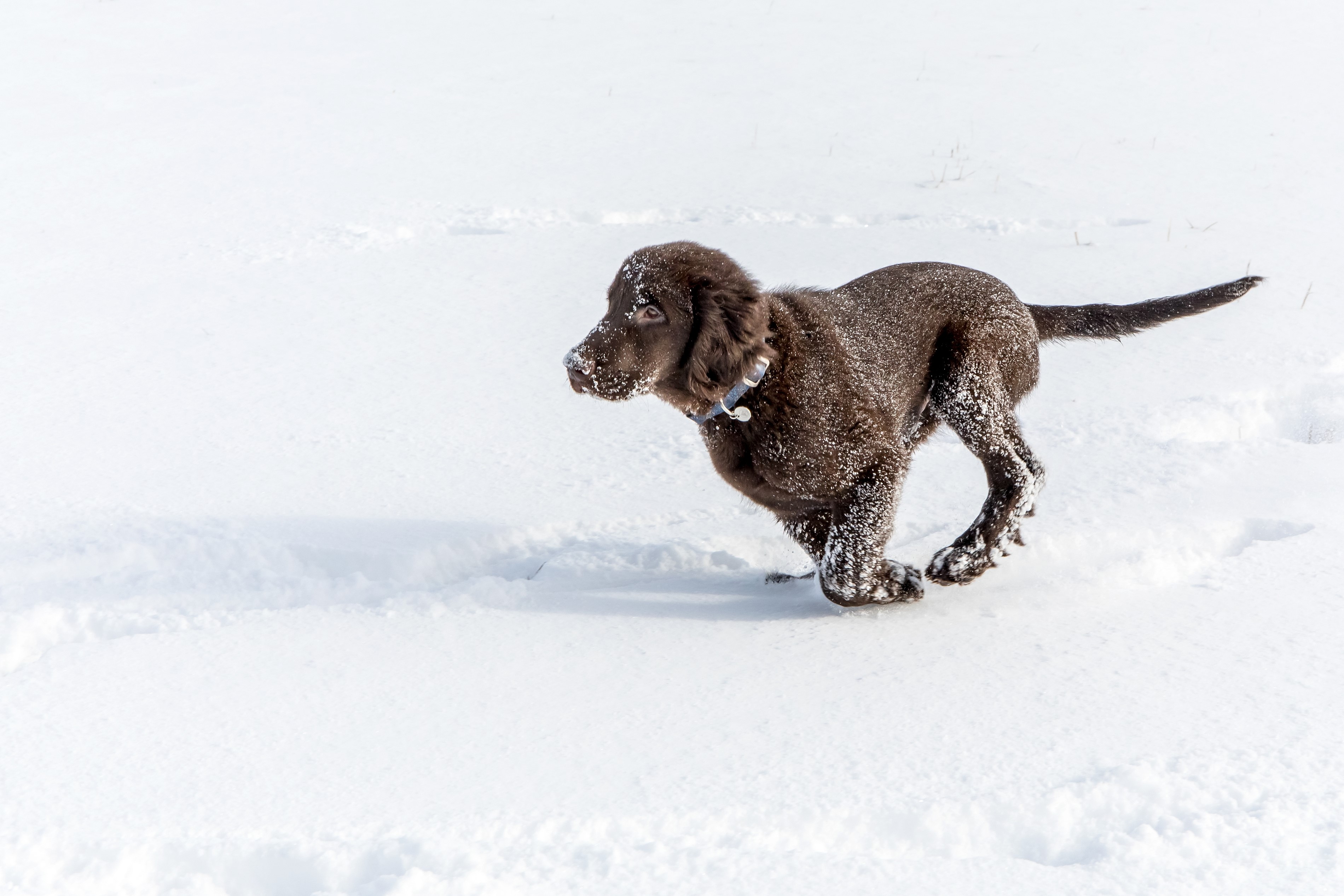
Keep them warm and dry
Dogs who’ve got wet and muddy on a walk may look like they’ve had the time of their lives but they can soon become unwell if you don’t dry them off.
A dog with a dirty coat won’t be properly insulated from the cold so make sure to keep them well-groomed so they feel the benefit when outside. Also, think about where they sleep. Put their bed in a warm spot away from any cold draughts and off the cold floor.
A warm blanket is a good idea to make a really snug environment for their naps. And if you’ve got an older dog with stiff joints then consider investing in a heated pet bed – doggy heaven!
Help them stay active indoors
Sometimes your faithful friend just won’t be up for venturing outside on their usual walkies. But that’s fine, everyone deserves a duvet day once in a while. However, while you shouldn’t force them outside, they still need a bit of exercise and entertainment at home.
If you haven’t already, invest in some dog toys for added enrichment while stuck indoors. It’ll be fun and still provide you with some valuable bonding time when the days are dark and gloomy. If you are stuck for ideas then Battersea Dogs and Cats Home has some great brain games for dogs you can try out together.
Limit outdoor time
No matter how much your playful pup loves to spend their days outside, when the weather gets frosty it’s always good to keep an eye on the clock.
After all pets can get hypothermia if they become too cold and can’t warm up – their fur will only protect them from so much cold weather.
Watch out for shivering, paleness, low energy, and bad coordination. Hypothermia is classed as an emergency so you should seek urgent veterinary advice.
Having the best pet insurance in place means you can get help whatever the time of year.
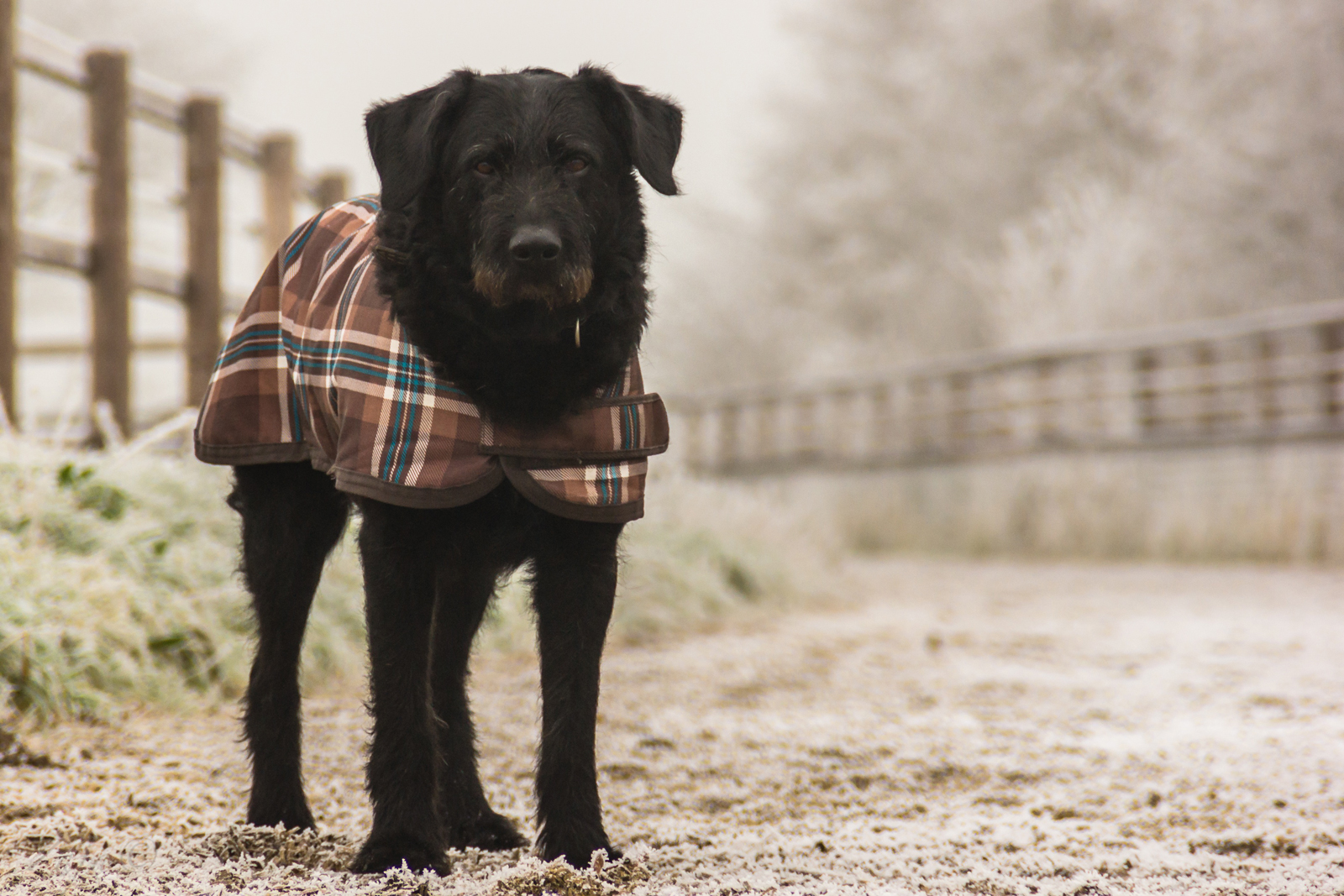
Stay hydrated and don’t overfeed
Just like in summer, dogs can easily get dehydrated so make sure they’ve always got access to plenty of clean, unfrozen water. In terms of feeding, dogs can become less active in winter so you might need to adjust the amount of food to stop them piling on the pounds.
And remember with all the human food on offer at Christmas time it can be tempting to give them a bit of what you’re having.
Unfortunately, this could easily give them an upset stomach while turkey bones could even choke them. Put the tin of Quality Street safely out of the way, too, as chocolate can be toxic to dogs.
Good winter walkies behaviour
Both fog and snow as well as other winter weather conditions can really impact on visibility during your daily walkies.
If you like to let them off the lead so they can really enjoy the outdoor benefits, then make sure they are well-behaved. If your dog doesn’t come when you call then they can easily get lost in poor weather.
Also, if their microchip details are not up to date then you might not be contactable if an emergency happens. Pet insurance can help cover the costs of any emergency care.
Enjoy the sunshine
Sunshine can be a rare sight as the nights get longer through winter and the weather takes a turn for the worse. So, if you see the sun poke out from behind the clouds grab their lead and get outside.
It’s great to have fun in the sun while you both can and you’ll feel both happier and healthier for it! If you do go out when it’s darker then attach a small light to their collar so they can always be spotted.
Don’t leave them unattended in a car
It isn’t just during the summer that you shouldn’t leave your dog alone in a car. Temperatures can drop very quickly in cold weather so it’s always best to take your dog with you rather than leaving them alone in a freezing vehicle.
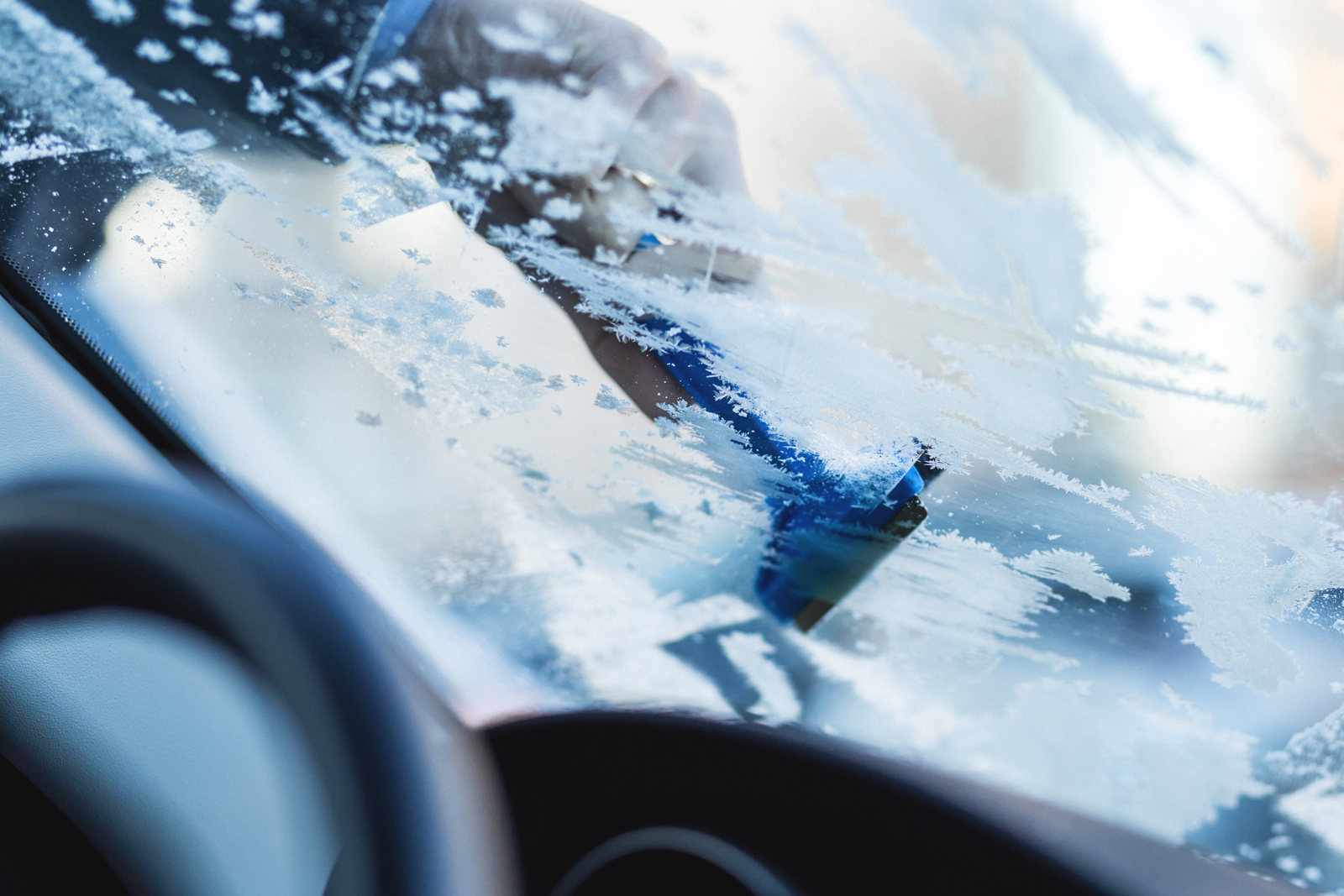
Steer clear of frozen lakes
A frozen pond or lake can appear very inviting to an intrepid four-legged adventurer but it’s really impossible to tell how secure the surface is. So, keep them on a lead when walking in such places.
10 ways to protect your cat this winter
Avoid antifreeze poisoning
Ethylene glycol, the chemical name of antifreeze, is very poisonous to cats and unfortunately has a taste that many cats like.
Store any such products securely and clean up any spills as soon as possible. Early warning signs of antifreeze poisoning include nausea, muscle spasms, walking unsteadily, increased thirst and urination.
If you suspect your cat has been exposed to antifreeze then call your vet immediately for advice and help.
Keep an eye on your car
In cold weather cats have been known to crawl under car bonnets and wheel arches to enjoy the warmth from car engines and tyres. Stay vigilant and always make sure to tap the bonnet of your car loudly and check around it before driving.
Give them a regular paw check
Paws need some extra care in the winter time to keep them properly prepared. If they’ve been out then wipe away any salt or grit on them and give them the once over to check for any injuries.
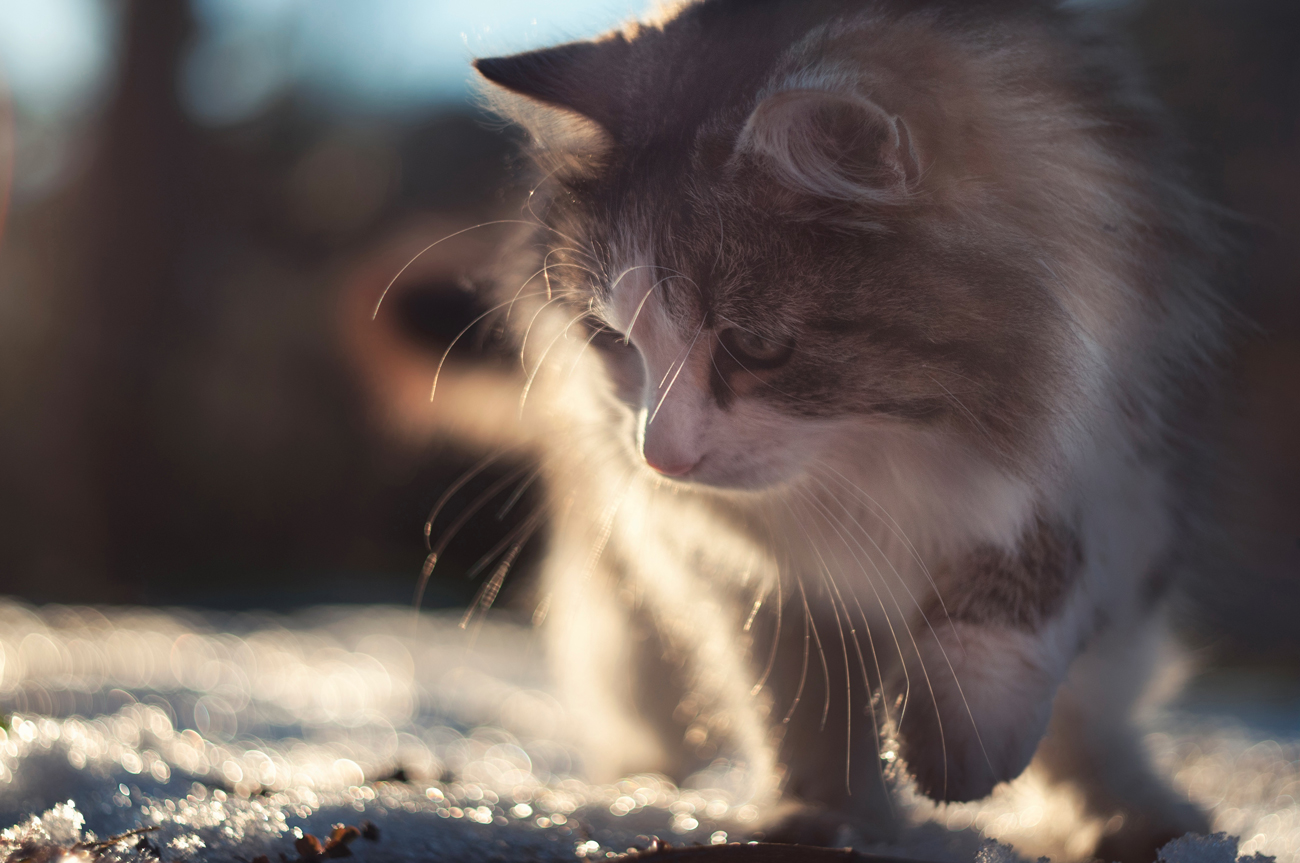
Toilet tasks
Even if your feline always goes to the toilet outside it’s still important to have an indoor litter tray so they always have somewhere safe, warm and accessible to go.
Even the hardiest cat won’t enjoy going outside to the toilet in freezing temperatures. Older cats or those with medical conditions or disabilities will be particularly appreciative of the indoor toilet option.
Provide plenty of play time and activities
Just because the weather has grown colder and your cat is spending more time snuggling inside, it doesn’t mean they don’t need entertainment.
Cats need plenty of physical and mental enrichment to keep them in tip-top winter shape. With you spending more time at home, too, it’s the perfect opportunity to consider how cat-friendly your home really is.
As well as getting some new toys why not invest in a perch so they can practise normal climbing behaviour without ruining your curtains!
Cats Protection has some great ideas for making your home as enriching as possible.
Watch out for senior cats
Older cats are often not as supple as they once were. So, if they get wet then give them a helping hand by drying them with a towel.
In winter it’s particularly important for such cats to have plenty of warm, snuggly places away from draughts as the cold can really aggravate medical conditions such as arthritis.
Pet insurance can help cover the costs of medication. Be aware that cats who have become less active or have lost some weight may also have trouble maintaining their body temperature on their own.
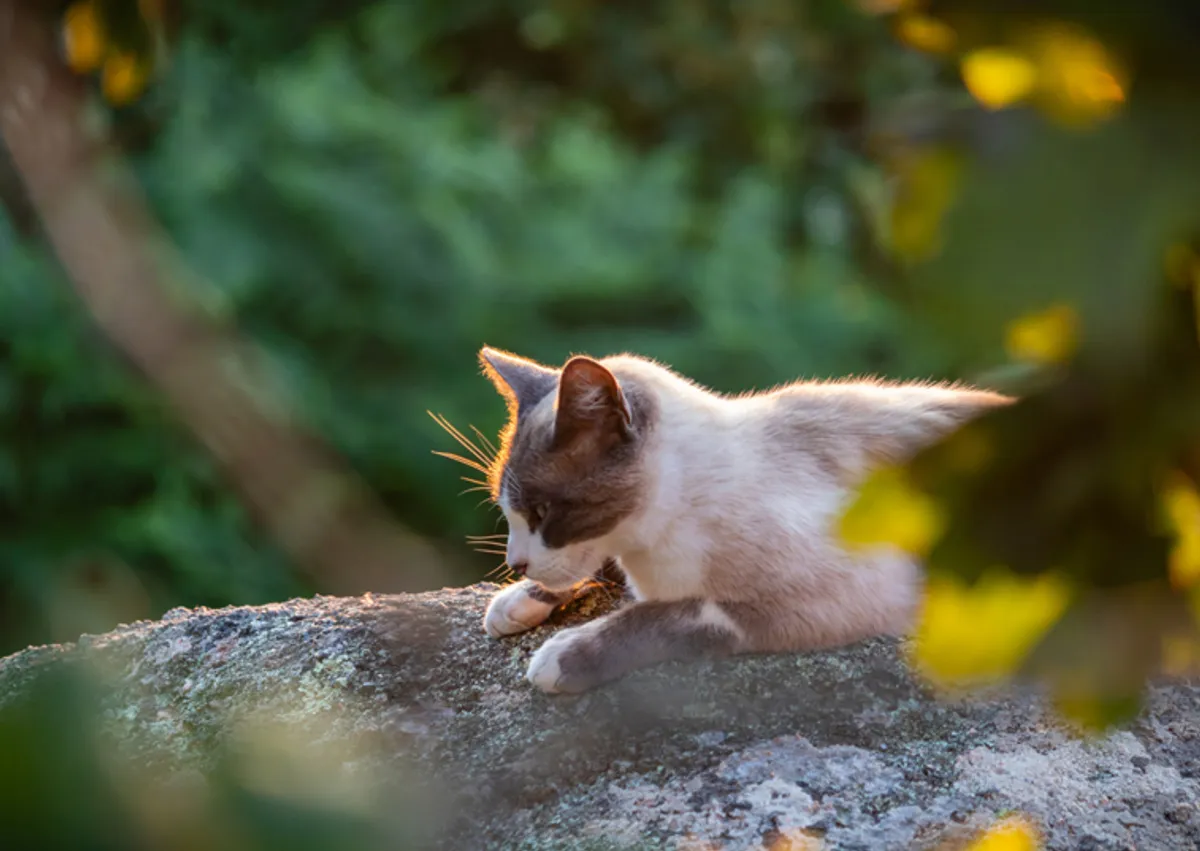
Safer sheltering
Many cats will continue to go outside during cold weather so it’s always useful to create an outdoor shelter for them to go when they want a break from the cold.
From a simple cardboard box to a well-insulated cat snug, there are plenty of suitable options. If you have a garden shed or other building be careful that a cat doesn’t get trapped inside – a cold place with no food and water is not a pleasant prospect for any furry friend.
Is your microchip up to date?
Cats are always getting themselves into scrapes, so it’s important your cat’s microchip is kept up to date in case they get lost or injured. Do this online with the database your cat is registered with.
If you’ve forgotten which database they’re on, then search using the microchip number on www.check-a-chip.co.uk. Cats Protection has lots of useful information on microchipping for cats.
Fire hazards and hidden dangers
At winter time we all love a nice roaring fire and some flickering candles dotted around the place to make things truly inviting when we get home. However, this can be a source of danger for you and your cat. So, never leave them alone around such open flames. It only takes a few moments for disaster to strike.
The festive season also has some hidden dangers for cats including the popular but toxic Poinsettia plants and the tempting pieces of tinsel that dangle around the place. Such dangers can easily cause an expensive trip to the vet and a Christmas hangover for all the wrong reasons.
If you’re a pet insurance policyholder with Purely Pets, don't forget you have access to Joii for 24/7 pet care for any concerns you have.
Fresh water on tap
Many cats have their own favourite places to get water when they are out on the prowl. However, if this freezes over then it’s vital the cat still has access to fresh water around the home. Keeping bowls clean and free of ice will help stop your cat becoming dehydrated.
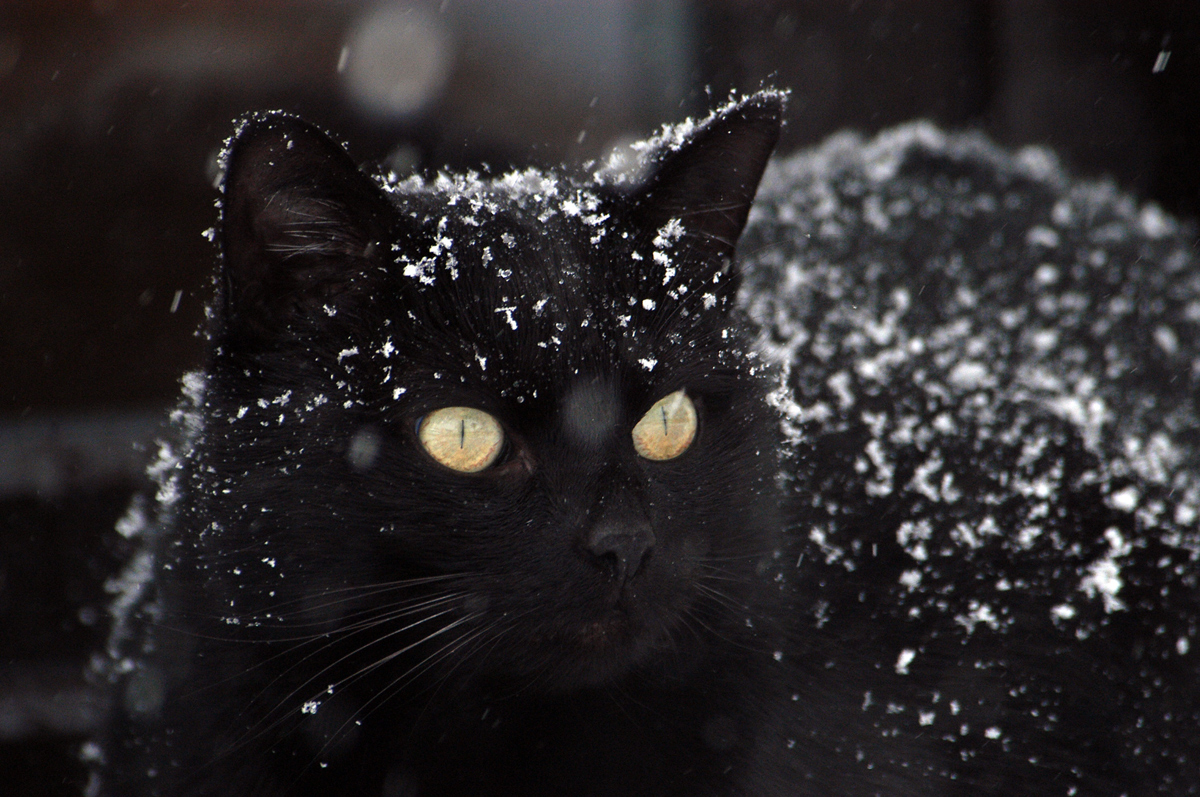
Protect your pet all year with Purely Pets
There’s so much fun to have both inside and out at winter time – but you always want your pets to play and stay safe. If your pet gets injured or ill at this time of year it could really upset the Christmas budget if you don’t have insurance cover in place.
Pet insurance from Purely Pets can give your pet the cover they deserve at a price to suit any budget. Vets’ fees for accidents, illness or both can be covered from between £1,000 and £15,000, depending on the level of cover you choose.
With 15 levels of lifetime cover on offer, you can pick a policy that suits your budget and requirements. As well as access to 24/7 pet care with Joii, and online portal to manage claims, speak to our specialist insurance team for advice.
Get a pet insurance quote today.
Policy benefits, features and discounts offered may very between insurance schemes or cover selected and are subject to underwriting criteria. Information contained within this article is accurate at the time of publishing but may be subject to change.
Helpful Pages
Recent Posts
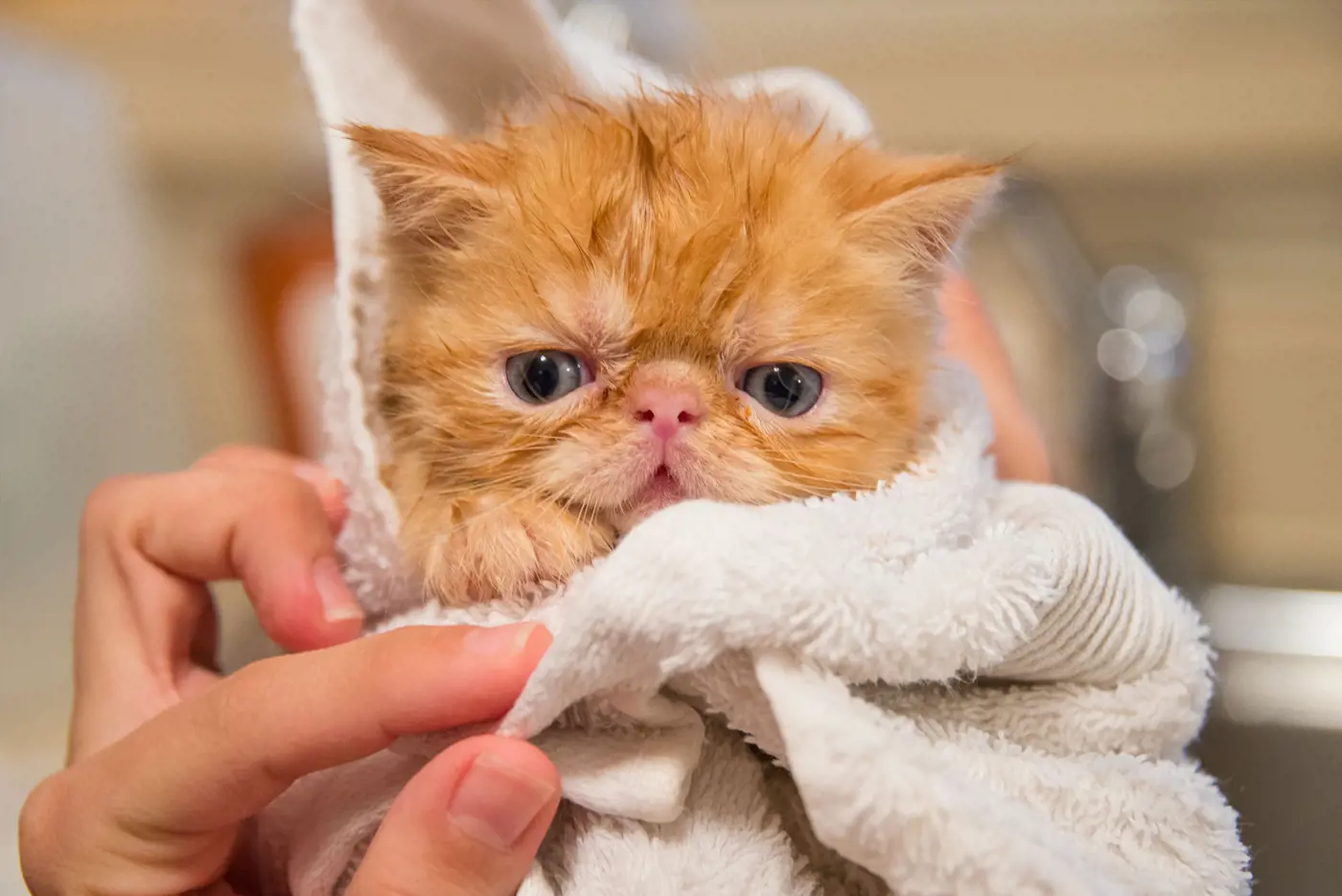
How to groom your cat properly
09/01/26Pet Insurance Quote
- 98% claims paid *
- Claims paid directly to vets
- 24/7 vet video consultations
- Interest free monthly payments
